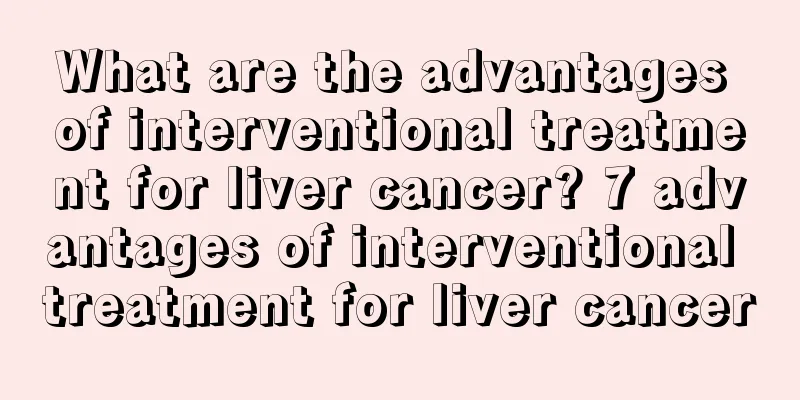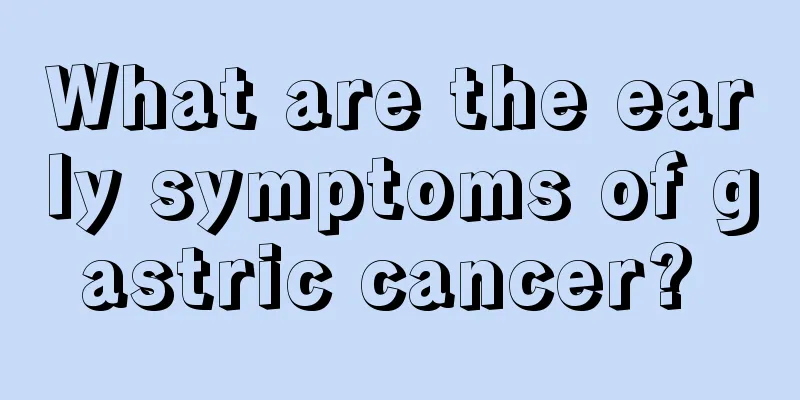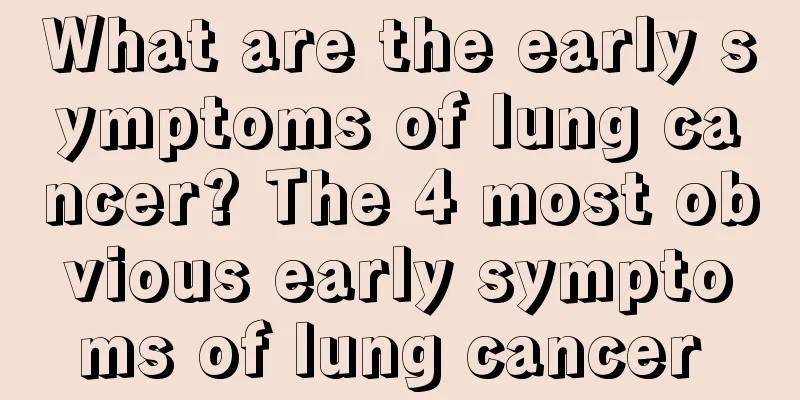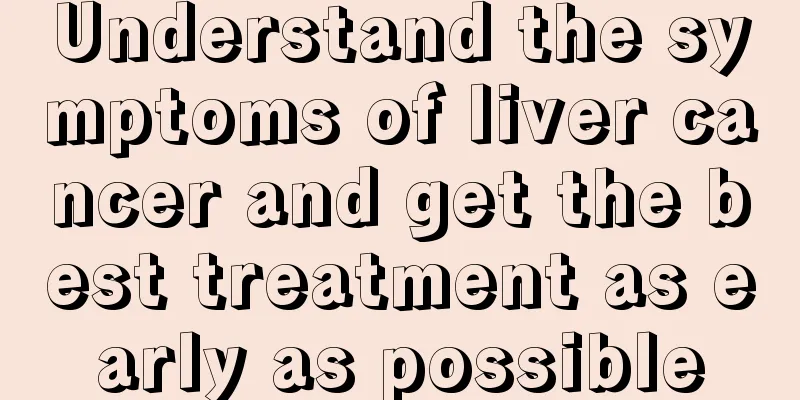What are the advantages of interventional treatment for liver cancer? 7 advantages of interventional treatment for liver cancer

|
Interventional treatment of liver cancer refers to a type of regional chemotherapy in which anticancer drugs or embolic agents are injected into the hepatic artery via femoral artery catheterization. It is currently the preferred method for non-laparotomy treatment of liver cancer, and its efficacy has been confirmed. Liver cancer has become one of the major diseases that endangers society and human health, and it has brought great pain and distress to humans. In order to reduce the incidence of liver cancer, interventional treatment of liver cancer is very necessary. What are the advantages and disadvantages of interventional treatment of liver cancer? Disadvantages of interventional therapy 1. Liver cancer's main blood supply depends on the hepatic artery, but the cancer mass is surrounded by the portal vein, so cancer cells can "survive in peace". 2. The operation is somewhat difficult. The catheter should be placed in the blood supply artery in a selective manner to achieve the best effect. However, sometimes it is difficult to enter the hepatic artery. However, some liver cancers can be supplied by multiple blood vessels. 3. Despite super-selective access, there are still obvious side effects. According to the data analysis of our hospital, the most common reactions are in the gastrointestinal tract. 4. Patients with portal vein cancer thrombus should consider removing the cancer thrombus as appropriate. 5. Even if the superselective operation is carried out smoothly, due to reasons such as high-pressure injection, it may cause accidental embolism, shunting and inevitable micro-metastasis. 6. Normal liver cells are still damaged, and a few patients even suffer from liver dysfunction. 7. The therapeutic effect is not satisfactory for patients with large cancer masses. 8. Some patients’ blood vessels are blocked after one treatment, making further operations difficult. Advantages of interventional treatment 1. The efficacy is definite. Successful treatment can show a rapid decrease in AFp, reduction in mass, and relief of pain. 2. Scientific mechanism: The local drug concentration of interventional therapy is dozens of times higher than that of systemic chemotherapy, and the blood supply to the tumor is blocked. Therefore, the two-pronged approach has good efficacy and less toxicity than systemic chemotherapy; 3. Interventional treatment of liver cancer is simple, easy, safe and reliable; 4. The elderly, the weak, and those with certain diseases can also undergo the procedure without general anesthesia and must remain awake; 5. The diagnostic imaging is clear and can be repeated, which is convenient for multiple comparisons; 6. For some liver cancers, the size can be reduced and then resected in two steps. 7. It can be used as one of the important means of comprehensive treatment of advanced tumors. 8. The cost of interventional treatment for liver cancer is relatively low. |
>>: Is contact with liver cancer patients contagious? Beware of these liver cancer misunderstandings
Recommend
What should I do if there are a lot of hard grains on the soles of my feet?
The health of the soles of the feet is often over...
How much is a reasonable fee for fibroid tumor examination
How much is a reasonable fee for fibroid tumor ex...
How to treat a hard lump on the buttocks
Some people may experience this situation, that i...
How to quickly relieve rhinitis
Rhinitis is a common respiratory disease and ther...
Three major symptoms of brain cancer
Brain cancer, also known as intracranial tumors, ...
What to do if your stomach is bloated all day long
The condition of the stomach can reflect the heal...
A sentimental person
Many people usually describe a person's chara...
There is a small bubble on the eyeball
Eyes are an important part of our facial features...
The cause of cardia cancer hidden behind
Cardiac cancer directly affects everyone's di...
Reasons for wide left lateral ventricle
The standard method for prenatal ultrasound exami...
Symptoms of prostate cancer cell spread in men
There are many things that can be done well, and ...
How long does sperm usually survive in the vagina?
Women, including men, who want to get pregnant as...
What is the reason for sweating at night?
Everyone knows that people are busy all day long....
What is the best medicine for small cell lung cancer
Small cell lung cancer is a relatively complicate...
How is the mid-term treatment effect of nasopharyngeal carcinoma
The treatment effect of nasopharyngeal carcinoma ...









